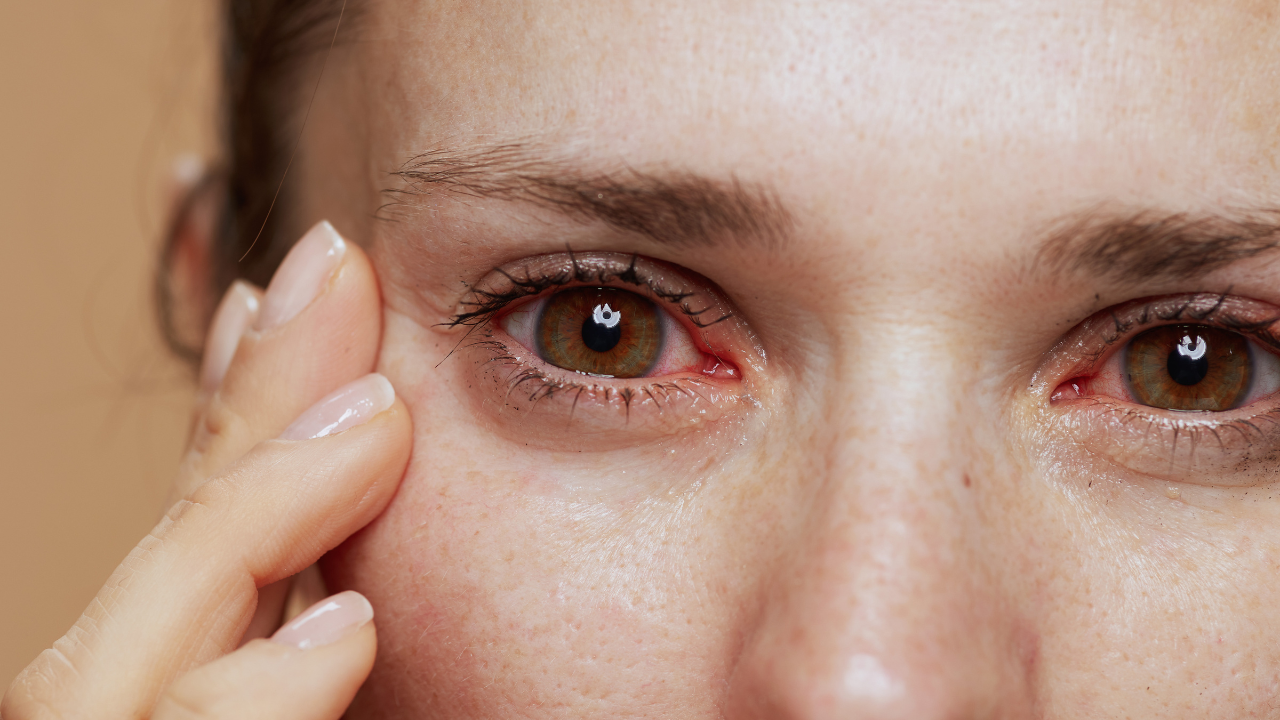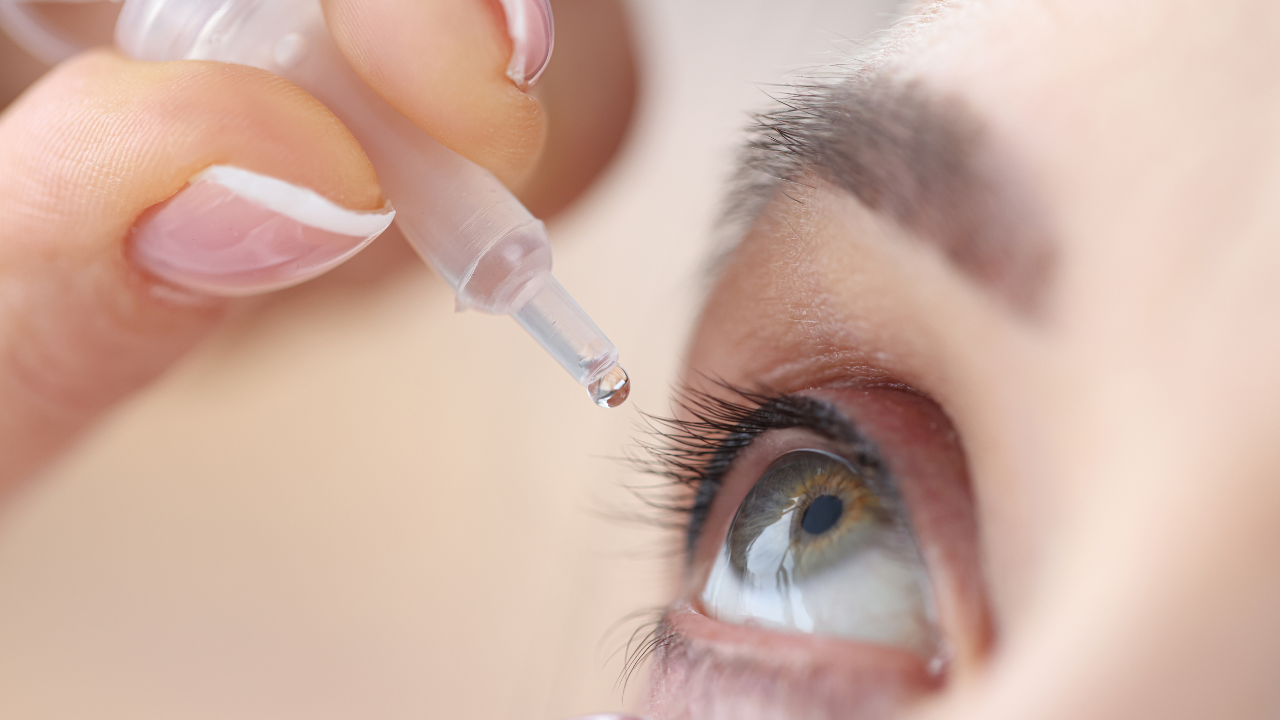Dry Eyes During Menopause
Persistent itchiness, also known as pruritus, is a common but frustrating symptom of menopause. Many women experience increased skin sensitivity, dryness, or tingling sensations due to hormonal changes.
At Evolve Telemedicine, we provide personalized treatment plans, including Hormone Replacement Therapy (HRT), to help restore skin health and reduce menopause-related itchiness.
What Causes Dry Eyes During Menopause?
Dry eyes during menopause occur primarily due to hormonal fluctuations, particularly the decline in estrogen and androgen levels. These hormones play a critical role in maintaining tear production and eye health.
Key Contributing Factors:
- Hormonal Changes: Decreased estrogen and androgen levels affect the quality and quantity of tears.
- Reduced Tear Production: Changes in tear glands lead to dryness and irritation.
- Environmental and Lifestyle Factors: Extended screen time, dry climates, and certain medications can worsen symptoms.

How Common Are Dry Eyes During Menopause?
Research shows that approximately 60% of menopausal women experience symptoms of dry eyes. This condition often overlaps with other menopause symptoms, such as dry skin and vaginal dryness, as they share similar hormonal triggers.
Did you Know?
Dry eyes can worsen with lifestyle habits, such as prolonged screen time or exposure to air conditioning, making proper management essential for relief.
Signs and Challenges of Dry Eyes
- Itching or Burning Sensation: A persistent feeling of discomfort in the eyes.
- Redness: Inflammation due to inadequate tear production.
- Sensitivity to Light: Difficulty tolerating bright lights.
- Blurred Vision: Intermittent blurriness, especially after prolonged visual tasks.
- Watery Eyes: A paradoxical overproduction of tears caused by irritation.


Tips for Managing Dry Eyes During Menopause
- Use Artificial Tears: Over-the-counter lubricating eye drops can provide temporary relief.
- Blink More Often: Consciously blinking during screen time helps spread tears evenly across the eyes.
- Stay Hydrated: Drinking plenty of water supports overall hydration and tear production.
- Adjust Your Environment: Use a humidifier to reduce dryness in your surroundings.
- Wear Sunglasses: Protect your eyes from wind, dust, and bright light to prevent irritation.
Can Hormone Replacement Therapy (HRT) Help?
Yes, HRT can help manage dry eyes by addressing the hormonal imbalances that impact tear production. By stabilizing estrogen and androgen levels, HRT supports tear gland function and improves overall eye health.
Benefits of HRT for Dry Eyes:
- Enhances the quality and quantity of tears.
- Reduces inflammation and irritation caused by dryness.
- Improves comfort and reduces reliance on artificial tears.
At Evolve Telemedicine, we tailor HRT plans to your individual needs, ensuring effective and safe relief from menopause-related symptoms, including dry eyes.

FAQs About Itchiness and Menopause

Hormonal changes, particularly the decline in estrogen and androgen levels, reduce tear production and impact eye health.
Yes, staying hydrated, using artificial tears, and adjusting your environment can help manage symptoms.
Absolutely. Treatments like HRT, lubricating eye drops, and lifestyle adjustments can significantly reduce symptoms.
HRT restores hormonal balance, supporting tear production and improving eye health.
We offer personalized care plans, including HRT and lifestyle guidance, to address dry eyes and other menopause symptoms.
Take Control of Dry Eyes Today
Dry eyes don’t have to disrupt your daily life. Evolve Telemedicine provides expert guidance and personalized treatments to help you find relief and restore comfort during menopause.

